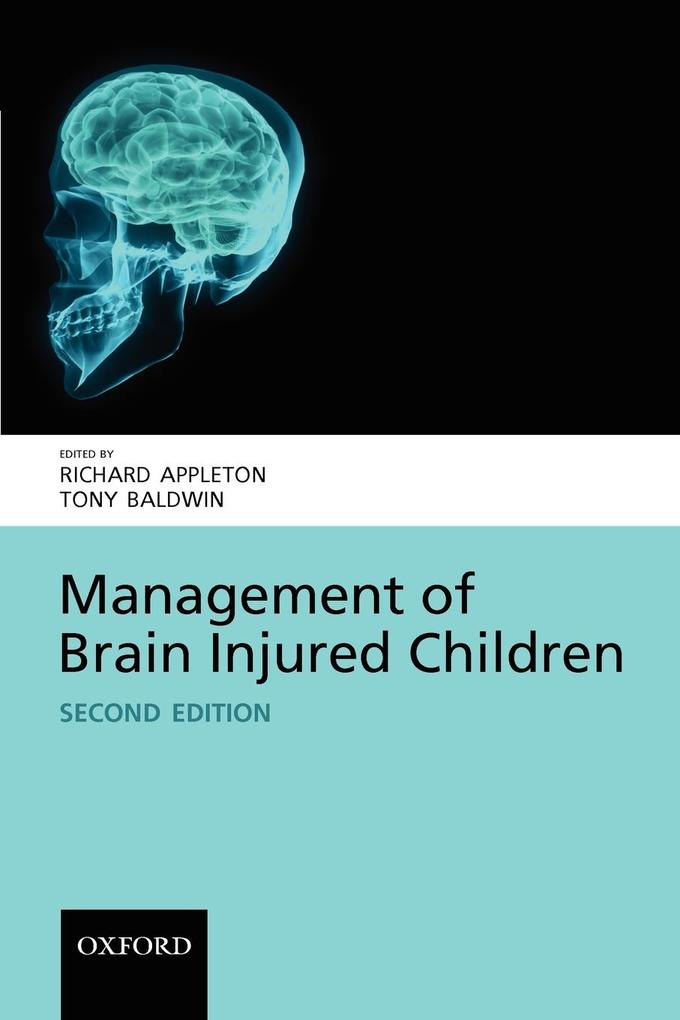This edition provides a detailed account of brain injuries in children. It considers how common they are and why they occur. It also provides a comprehensive description of how the physical, communicative, educational, and behavioural effects are managed, in both the short- and long-term.
Brain injuries are common in children, typically following head trauma but also complicating meningitis, encephalitis, cerebrovascular haemorrhage (stroke) and brain tumours. Many children suffer irreversible impairments and are left with major physical, educational and behavioural disabilities. This has tremendous implications for health, education and social services. The survivors of brain injuries pose a significant burden on the NHS, the community and families. Despite this, resources are limited or non-existent in many parts of the UK and, consequently, many hospitals, schools and education authorities, and social services are unsure how to address the many problems shown by these children and their families.
The new edition of 'Management of Brain Injured Children' provides a detailed account of brain injuries in children. It considers how common they are, why they occur, and how they may be prevented. It also explains how children are resuscitated following the acute insult, and provides a comprehensive description of how the physical, communicative, educational, and behavioural effects are managed, in both the short- and long-term, and how this impacts on the family. A parent's experience of having a child who suffered a severe head injury provides an invaluable contribution, as does the account of her daughter, now a teenager. The book concludes with appendices detailing useful support organisations and relevant governmental and other agencies' publications. Referencing is thorough and up-to-date, providing readers with useful sources of information for additional reading.
Inhaltsverzeichnis
- 1: Richard Appleton: Epidemiology - incidence, causes, severity and outcome
- 2: Jane Ratcliffe: Resuscitation and acute treatment of brain injuries (traumatic and atraumatic)
- 3: Richard Appleton, Liz Furlong and Tony Baldwin: Brain (head) injury team
- 4: Liz Furlong, Julie Sellars, Tamsyn Doyle and Richard Appleton: Immediate medical and nursing needs
- 5: Nicola Henderson, Eileen Kinley and Sue Loughran (with contributions from Susie Harrison, Paul Ritson and Juliet Weston): Physical (motor and functional) problems
- 6: Helen Gore and Suzanne Tyrer: Feeding and swallowing problems
- 7: Helen Gore and Suzanne Tyrer: Speech and language problems
- 8: Tony Baldwin, Colin Demellweek, Peter Rankin and Fran Carleton: Cognitive problems
- 9: Colin Demellweek, Tony Baldwin and Peter Rankin: Emotional, behavioural, psychiatric and social problems
- 10: Colin Demellweek and Richard Appleton: The impact of brain injury on the family
- 11: Jackie Gregg and Tony Baldwin: Community liaison
- 12: Jackie Gregg and Richard Appleton: Prevention of brain injury
- 13: Richard Appleton: The future
- 14: Paula and Lizzie Pearson: A parent's - and her brain-injured daughter's - view










